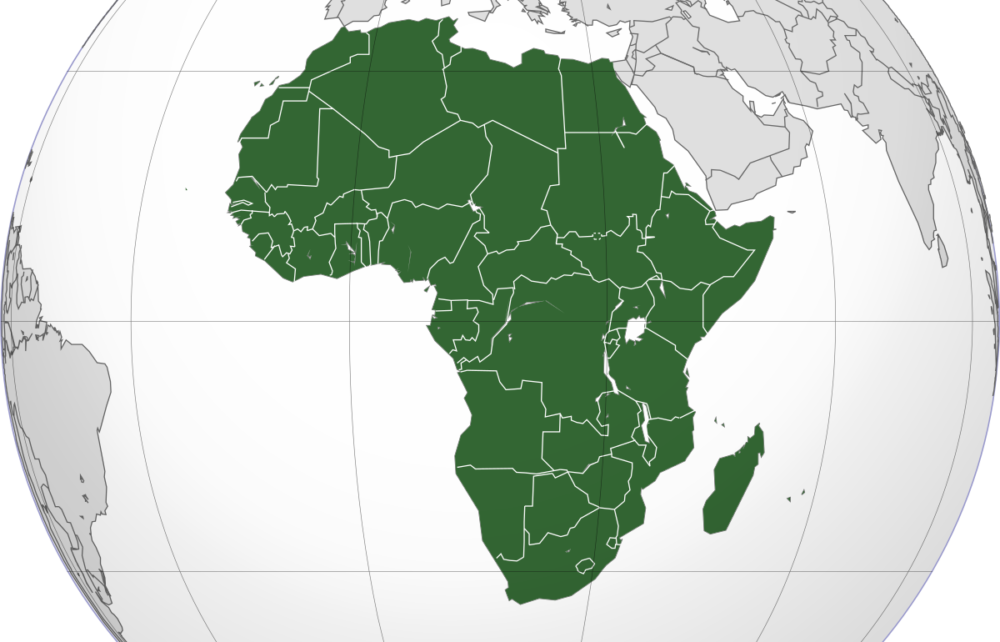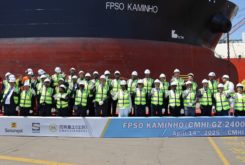*Luís Manuel Brás Bernardino
Introduction
Popular Republic of China is, by many specialists, recognized as a global actor in the framework of International Relations. As a result of a foreign policy denominated by ‘Going Out Strategy’, launched officially in 2001, China has emerged recently to this reality. More specifically since 2013, after the presentation of its new global connectivity strategy designated by ‘Belt and Road Initiative’, rising not only as an important economic, political and diplomatic player, but also of security, namely in Africa, where its presence is undeniable.
The existence of Chinese citizens and economic interests in Africa has grown substantially since 2001 given the expansion Chinese trade relations with African States (and Organizations), financing projects related with infrastructure construction and establishing economic agreements of medium/long term strategic partnerships. Most of the times, these partnerships are based in the supply of strategic natural resources to China, such as petroleum, natural gas or even the acquisition of extensive agricultural production land parcels, fostering African economy and increasingly contributing to the regional and continental security in Africa.
Nowadays, in this continent, many countries and regional organizations are involved intrastate armed conflicts, and are devastated by jihadist terrorism phenomenon, illegal traffic and banditry or maritime piracy throughout its coastline, which results in a sentiment of regional insecurity. It is safe to state that the conflict in the African continent is a problem that surpassed the regional or continental dimension, becoming a global issue, with an obvious impact in the world economy. In this context, the rising number violent attacks against workers and Chinese interests in Africa, led to an awareness of the Chinese community (and its political executives) to the need of protection, associated with economic loss which these kidnaps and safety incidents originate. These aspects are some of the key factors that persuaded the Chinese government to react and invest in a security reinforcement of its citizens and economic and financial interests in Africa, which appears to be a ‘new’ Chinese Military Strategy.
The ’new’ Chinese Military Strategy in Africa
In a timespan of a decade, Popular Republic of China went from an uncompromising non-involvement to a selective and incremental engagement in the bilateral, regional and global cooperation in peace and safety matters. Namely, through the creation of cooperation and bilateral/multilateral assistance programmes integrated in the ‘new’ framework of Foreign Policy of Defense, maintaining, however, the uncompromising principle of non-interference in the foreign countries’ internal matters. Over decades, such behaviors have made of China a not so relevant actor in matters of security and Defense in Africa. According to this new paradigm, China has applied a strategic approach based on two main vectors: firstly, to defend its economic and safety interests, and secondly, to expand its influence in Africa and, consequently, in the world.
The growing engagement of China in peace operations in Africa acted as a pretext to accelerate the construction of the Blue Waters Navy, with the goal of increasing its presence in the Indic and Pacific Oceans, having established its first overseas military base in 2017, in Djibouti, Africa. On the other hand, China has widen its military presence involving bilaterally African countries through the execution of joint military exercises, reinforcing military training and advisory, establishing protocols for the supply of information systems related with cybersecurity, increasing the sale (and counterpart donations) of arms and related material and, finally, creating military infrastructure construction programmes, ensuring a reinforcement of cooperation in defense with almost every African country.
The bilateral aspect is reinforced, multilaterally, through the increasingly privileged and strategic relation with AU and ARO and through the newly created China-Africa Forum for Security, combining both aspects of cooperation in a bi-multilateral strategic approach.
Nowadays, this approach covers almost all the African continent and is related with Sates and Regional Organizations. Currently, China has embassies across 50 African States and is represented in every ARO, guiding the relations of China with AU and the Regional Economic Communities, since this cooperation has become more and more institutionalized and strategic for China. This framework has allowed for the creation of opportunities to align China and Africa with bi-multilateral standards and agreements, resulting a strategic partnership with Organizations and African States, involving several fields of cooperation, namely the economic and financial and safety and defense fields, included in de Action Plan of 2019-2021.
In 2022, China occupied the 9th place in terms of contributions of troops for the UN missions, with a total of 2,235 soldiers and officers. Currently, it is the largest contributor of troops among the five permanent members of the UNSC. In the last years, Popular Republic of China has increased the contribution for the peacekeeping operations budget of the referred organization, representing 15.2% of the UN Department of Peacekeeping Operations budget, occupying the 2nd place after the USA (27.9%).
In what concerns the bilateral aspect, that still constitutes the most crucial vector of Defense cooperation in Africa, we have observed a significant increase of the joint military exercises and the visits to Chinese Navy ports, namely through the participation in anti-piracy operations, led by the UN, across the Horn of Africa, in which the visits of the Chinese Navy to African countries from the naval base in Djibouti have become more and more frequent.
Therefore, the presence of security contractors, that is Chinese security companies which have stablished themselves in the African security context while respecting the principle of non-interference, aim to bridge, on one hand, the failures of the African government in what concerns the safety of Chinese workers and companies and, on the other hand, reinforce the cooperation and influence across Africa, resulting in a contribute for the Chinese Defense Economy and a source of employment for the 50 million PLA military reservists which are integrated in these semi-statal security companies. The employment of these security companies works as a complement to the Chinese security strategy in Africa, benefiting the statal and regional security, as well as China itself given the level of revenues this field of economy is able to generate.
Concluding Remarks
Recently, the development of the Chinese Military Strategy has been based in a dynamic of selective involvement, privileging the principle of non-interference in the foreign countries’ internal matters. However, this bi-multilateral strategy has led China to be more interventionist and to assume itself as a main actor for the regional security and defense in Africa. This aspect, in what we denominate by a ‘new’ Military Strategy, combines elements of continuity and some innovative features which are characterized by a greater interference in the multilateral framework of Peacekeeping Operations, the reinforcement of the presence of Chinese private military companies and the reinforcement of cooperation and military advisory, besides the increase in the sale of arms and in the number of technical assistance and military technology programmes in African countries.
In the future, we believe the Chinese influence will grow and expand across the African continent, which will result in the engagement of naval operations across the Atlantic Ocean and the interference in ground operations in the UN and AU framework, progressively strengthening its relevance and military presence in Africa, as an important part of a globalization strategy in its Foreign Policy of Defense.
Lisbon, June 17th 2022
Bio: Luís M. Brás Bernardino is an Infantry Colonel in the Portuguese Army with the Staff Course and more than 35 years on duty with missions around the world manly in Africa. MA in Strategy (2007) and PhD in International Relations (2012) from the University of Lisbon. He is currently conducting research at the Center for International Studies at the Lisbon University Institute (CEI-IUL) and at the Scientific and Cultural Macao Centre (CCCM). He is a member of the editorial board of “Revista Militar” and “Revista de Ciências Militares” in Portugal and regularly participates in national and international seminars about Africa. He had published several articles on academic journals about security and defence in Africa, mainly in the CPLP sphere and particularly about Angola. Colonel Luís Bernardino is currently a Professor at the University Military Institute (IUM) in Lisbon.
References
CHINA WHITE PAPER (2019). China’s National Defense in the New Era: Beijing. [http://eng.mod.gov.cn/publications/2019-07/24/content_4846452.htm]
CHINA’S GROWING ROLE AS A SECURITY ACTOR IN AFRICA (2019). Briefing European Parliament. Bruxelas[https://www.europarl.europa.eu/RegData/etudes/BRIE/2019/642232/EPRS_BRI(2019)642232_EN.pdf]
KWASI, Stellah (2019). High cost of having China as Africa’s partner of choice. Institute for Security Studies. 13 March 2019. [https://issafrica.org/iss-today/high-cost-of-having-china–as-africas-partner-of-choice.]




